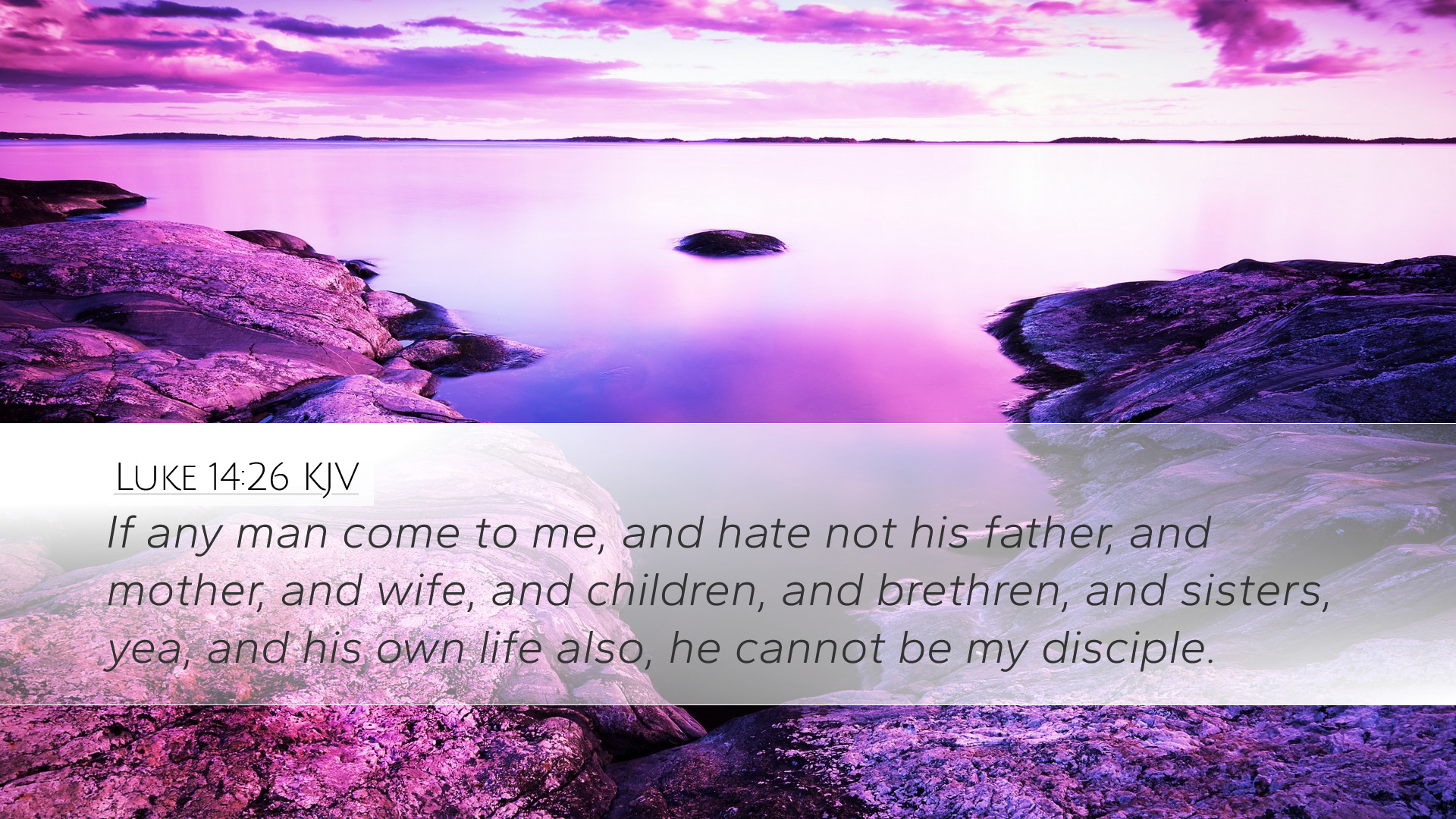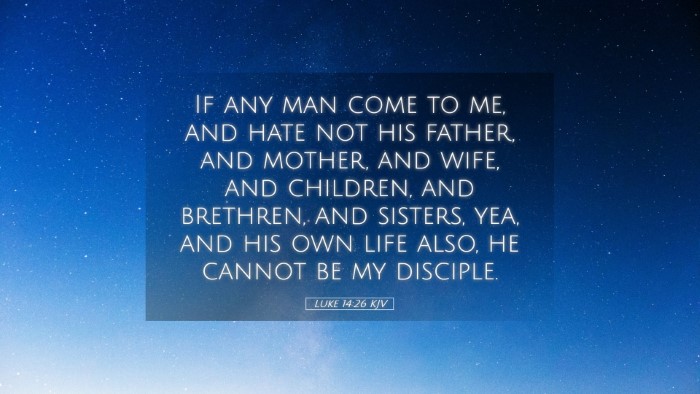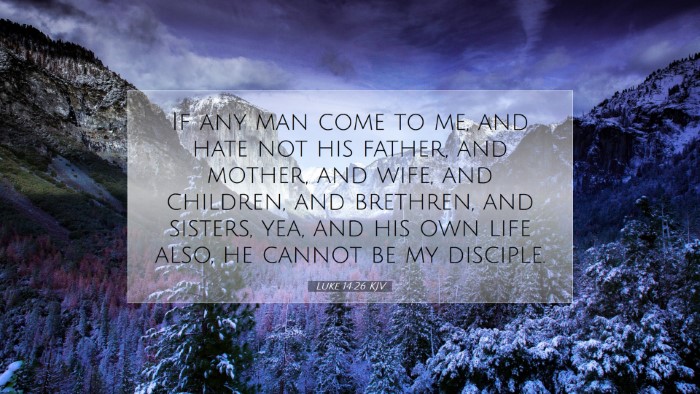Luke 14:26 - Exegetical Commentary
Scripture: "If any man come to me, and hate not his father, and mother, and wife, and children, and brethren, and sisters, yea, and his own life also, he cannot be my disciple." (KJV)
Introduction
Luke 14:26 presents a profound challenge to the discipleship of Jesus Christ. This verse compels believers to evaluate their relationships and the degree of their commitment to Christ. The teachings of this scripture have been analyzed extensively, revealing layers of meaning that resonate deeply with the Christian experience.
Contextual Background
This verse is situated during a teaching session where Jesus is addressing large crowds. The context reveals the demands and expectations placed upon those who wish to follow Him. Understanding the social and historical background enhances the meaning of "hating" family relationships as articulated in this passage.
Analysis of Key Terms
- Come to Me: This phrase indicates an invitation but also suggests a journey of commitment towards Christ.
- Hate: The term 'hate' needs to be understood as a comparative term rather than an emotive response. It indicates prioritizing Christ above all worldly relations.
- Disciple: The concept of discipleship implies a deep, transformative relationship with Jesus, initiated by a willingness to forsake lesser commitments.
Commentary Insights
Matthew Henry’s Exposition
Matthew Henry emphasizes that the language of "hate" is hyperbolic, intended to convey the necessity of prioritizing our relationship with Christ above all others. He asserts that true discipleship requires a radical reordering of loyalties, even in the face of familial relationships. According to Henry, this passage underscores the cost of discipleship, likening it to the sacrifices made by the early Christians, who often faced persecution and abandonment for their faith.
Albert Barnes’ Notes
Albert Barnes elaborates on the implications of this verse by stressing that love for Christ must be supreme. He notes that Jesus is calling His followers to a deeper loyalty that transcends natural affections. Barnes highlights the idea of counting the cost before following Christ, akin to a builder assessing the resources required to complete a tower. This foresight ensures that one is fully committed and aware of the potential estrangement from family that might result from following Christ.
Adam Clarke’s Commentary
Adam Clarke also interprets the hyperbolic use of "hate" to signify a comparative allegiance. He discusses how Jewish cultural norms placed significant emphasis on family honor and relationships. Clarke warns that this passage might be misconstrued if taken literally, stressing that Jesus does not advocate for actual hatred. Instead, he urges his disciples to love Christ more than anyone else, as genuine love for Christ will inform and enhance all other relationships.
Theological Implications
This verse raises essential theological inquiries about the nature of love, loyalty, and commitment. It invites believers to reflect on the following themes:
- The Cost of Discipleship: Following Christ requires significant sacrifices, positioning Him above every other relationship in life.
- Reordering of Affections: Christ asks for a re-evaluation of our deepest loyalties, calling us into a greater love that informs our relationships with others.
- Radical Commitment: The call to discipleship is framed not merely as a decision but as an all-consuming lifestyle that prioritizes the Kingdom of God.
Applications for Today’s Believers
In contemporary Christian practice, the teachings derived from Luke 14:26 can inform various aspects of life:
- Family Dynamics: Believers are encouraged to maintain love and respect for family while understanding that loyalty to Christ must take precedence.
- Evangelistic Endeavors: The necessity for conversion often entails the rejection of cultural norms or familial expectations that conflict with Jesus’ teachings.
- Personal Reflection: Individuals should engage in self-examination regarding whether anything in their lives holds greater authority than their commitment to Christ.
Conclusion
Luke 14:26 challenges all followers of Christ to lovingly evaluate their commitments. The phrase "hate" is not a call to animosity but an invitation to deepen one’s affection for Jesus while redefining all other relationships through the lens of that love. While the cost of discipleship is significant, the rewards of a life devoted to Christ outweigh any worldly loss, inviting believers into a transformative journey of faith.


